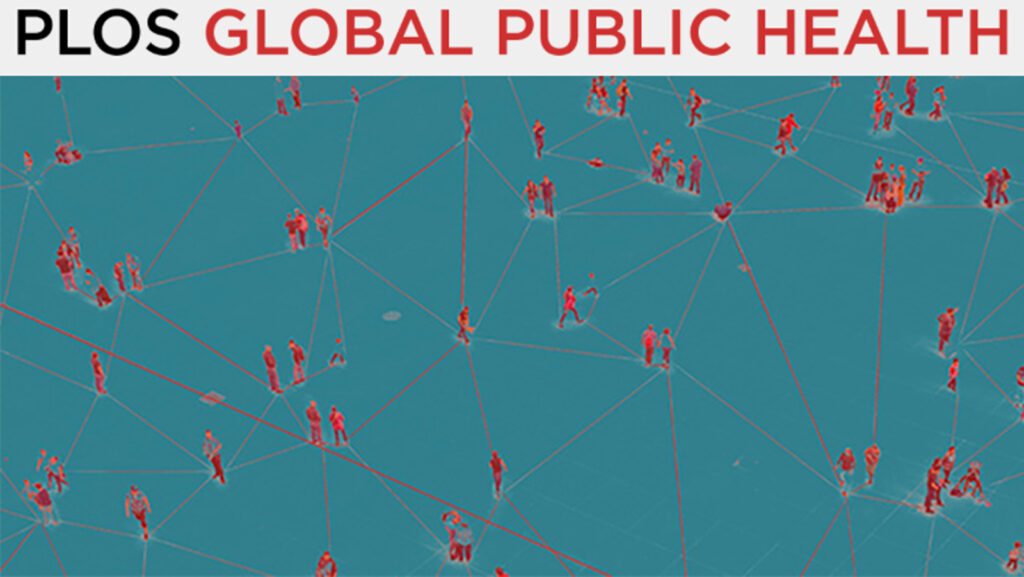Systematic review identifies concerns with current medical rationales for “sex-normalising” interventions in childhood
Mauro Cabral Grinspan and myself are acknowledged for our contribution to research design in this groundbreaking systemic review by staff of the WHO on so-called "sex-normalising" surgeries in infancy.
Page last reviewed 10 January 2025

I celebrate the publication of thae groundbreaking article titled “Perspectives on conducting “sex-normalising” intersex surgeries conducted in infancy: a systematic review”, co-authored by Luke Muschialli, Connor Allen, Evelyn Boy-Mena, Aiysha Malik, Christina Pallitto, Åsa Nihlén and Lianne Gonsalves. This independent research team includes staff of the World Health Organization (WHO) Department of Sexual and Reproductive Health and Research (SRH).
The article presents the outcomes of a systematic study, focused on identifying and analyzing key rationales used by medical practitioners to justify “elective” (non urgent) surgical interventions performed on children with innate variations of sex characteristics.
Outcomes are striking: a vast majority of the papers reviewed showed that those early “elective” surgical interventions were performed because of unevidenced and inappropriate rationales. Those rationales include, for example, a strong emphasis on cosmetic outcomes. They also include a pervasive belief in the need of surgically shaping external genitals to match sex assigned at birth, ensure the development of “normal” gender identities and sexual orientations, and facilitate children’s “psychological adjustment”. In some cases, addressing real or potential parental distress through surgery on a child was presented as an acceptable rationale. In other cases, those rationales were built on the subjective opinions of doctors and/or parents about the possible “satisfactory” consequences of surgical interventions. Many of the analysed papers did not include rationales of any kind. And even when human rights “controversies” around those interventions were acknowledged, children were subjected to them nonetheless.
These outcomes are not surprising for intersex advocates. Over the past 30 years, the intersex movement has denounced both pre-emptive “sex-normalising” interventions (those that take place before individuals can freely express their own values and preferences) and the flawed rationales supporting them. However, this is the first systemic review analysing rationales for medical interventions, and it shows that the position of the intersex movement on such interventions is justified. The authors state:
This review has identified heterogeneous literature reporting the surgical outcomes, rationales, and controversies of surgical interventions, with notably inconsistent study designs, methods, and outcome reporting. Assessment of surgical rationale and outcomes has revealed that medical teams continue to conduct these interventions in the face of controversy due to desires to mitigate parental distress surrounding the perceived difficulties of raising a child with a congenital variation in sex characteristics, as well as a variety of under-researched or outdated beliefs
The persistence of these rationales have ethical and human rights implications:
Irreversible, elective, “sex-normalising” genital interventions on infants or children with congenital variations of sex characteristics are unethical without the full, free, and informed consent and active participation in decision-making of the individual concerned. Rationales of achieving a cosmetic outcome perceived as satisfactory by individuals to whom the genitalia do not belong, matching parental desire or alleviating parental distress, or promoting a specific gender identity do not justify continuation of these procedures.
The paper shows the direct relationship between the pathologising language of “Disorders of Sex Development”, and the widespread occurrence of “elective”, “sex-normalising” surgical interventions performed on children and pre-empting their right to consent.
In my role at Intersex Human Rights Australia, I comment:
We welcome this paper documenting the persistence of unevidenced and inappropriate clinical rationales for unnecessary and harmful practices on children with innate variations of sex characteristics. Protections for bodily integrity and bodily autonomy, and psychosocial support, are essential to protect and promote the highest standards of health for people with innate variations of sex characteristics. This research provides a basis for action by the WHO to support efforts to regulate medical practices, promote investment in psychosocial support, and ensure effective and accountable oversight. Human rights institutions must also act to investigate such practices and promote reform.
Read the paper: Muschialli, Luke, Connor Luke Allen, Evelyn Boy-Mena, Aiysha Malik, Christina Pallitto, Åsa Nihlén, and Lianne Gonsalves. 2024. ‘Perspectives on Conducting “Sex-Normalising” Intersex Surgeries Conducted in Infancy: A Systematic Review’. PLOS Global Public Health 4 (8): e0003568. https://doi.org/10.1371/journal.pgph.0003568.